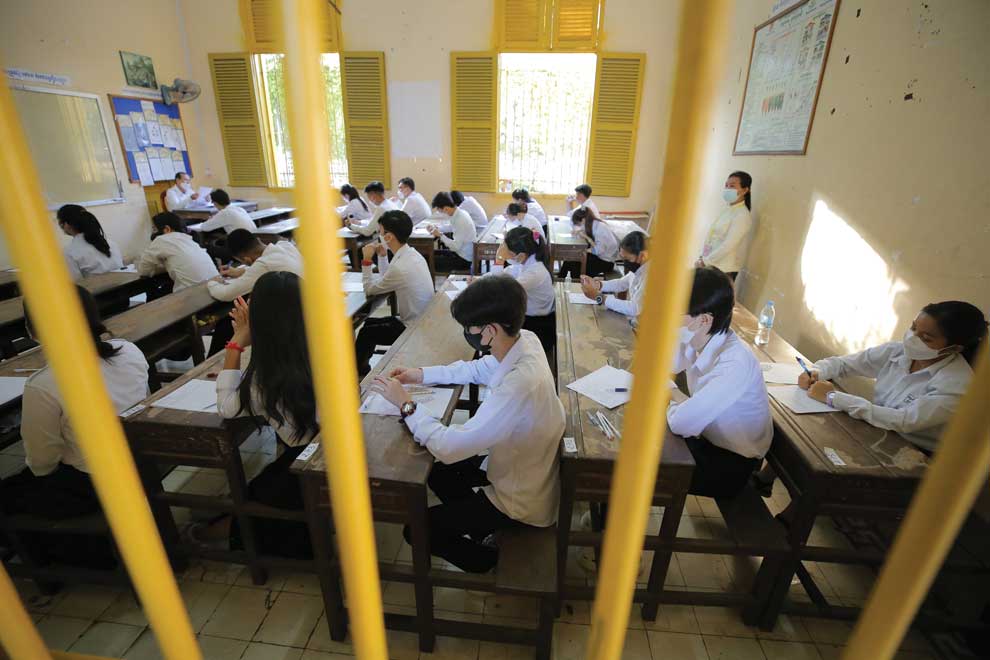
High School students take the diploma exam at Preah Sisowath Hight School on December 5. Hong Menea
The Ministry of Education, Youth and Sport will receive an award at Oxford University’s World Literacy Summit in the UK. The award is in recognition of the ministry’s years of educational reform in response to the promotion of literacy in Cambodia, according to minister Hang Chuon Naron.
Speaking at a recent educational forum on the Digital Education Transformation towards a Digital Economy, the minister said the award was welcome recognition.
“The award from Oxford vindicates the hard work we have done to promote literacy,” he said.
“Reforms, including at the higher educational level and in exams, help to improve the quality of the education sector. Of course, there are some remaining challenges that need to be addressed,” he added.
He noted that about 30 per cent of the Kingdom’s teachers hold Bachelor’s degrees.
“In many other countries, a Master’s degree is required to teach, even at primary school level. Finland is one such example. This is a challenge for us,” he said.
“We have established a policy that will require a Bachelor’s degree to teach at primary level, and a master’s to work at higher levels,” he elaborated.
The World Literacy Summit, to be held from April 2-4, recognises government institutions, states, provinces and cities for outstanding policies and improvements to literacy and education.
Asked for more details of the programme, conference director Greg Zaralides said: “We are currently working with a delegation from the Ministry of Education, Youth and Sport, which will accept the award.”
Hong Reaksmey, country director of Save the Children Cambodia, welcomed the upcoming award.
“We congratulate Hang Chuon Naron and the Ministry of Education, Youth, and Sport for the award. I think the ministry deserves recognition for its ongoing commitment to not only policy reform but also through national budget allocation. It has worked closely with all stakeholders, including civil society organisations,” he said.
Chuon Naron has led educational reform of the upper secondary exams since 2014, a year after taking office. In 2014, only 25 per cent of the applicants passed the exams.
The following years saw vastly improved results, with 56 per cent passing in 2015, 67 per cent in 2018 and 72 per cent in the last school year.
The ministry prioritised several reforms, including improving the teaching profession, assessing student achievement, and reviewing curricula and core textbooks. The reform of examinations has garnered widespread parental support.
It also appears to have motivated teachers and students to strive even harder – in 2014, just 14 students earned an A grade in their final exams, while in 2023, A grades were awarded to 1,049 students.








